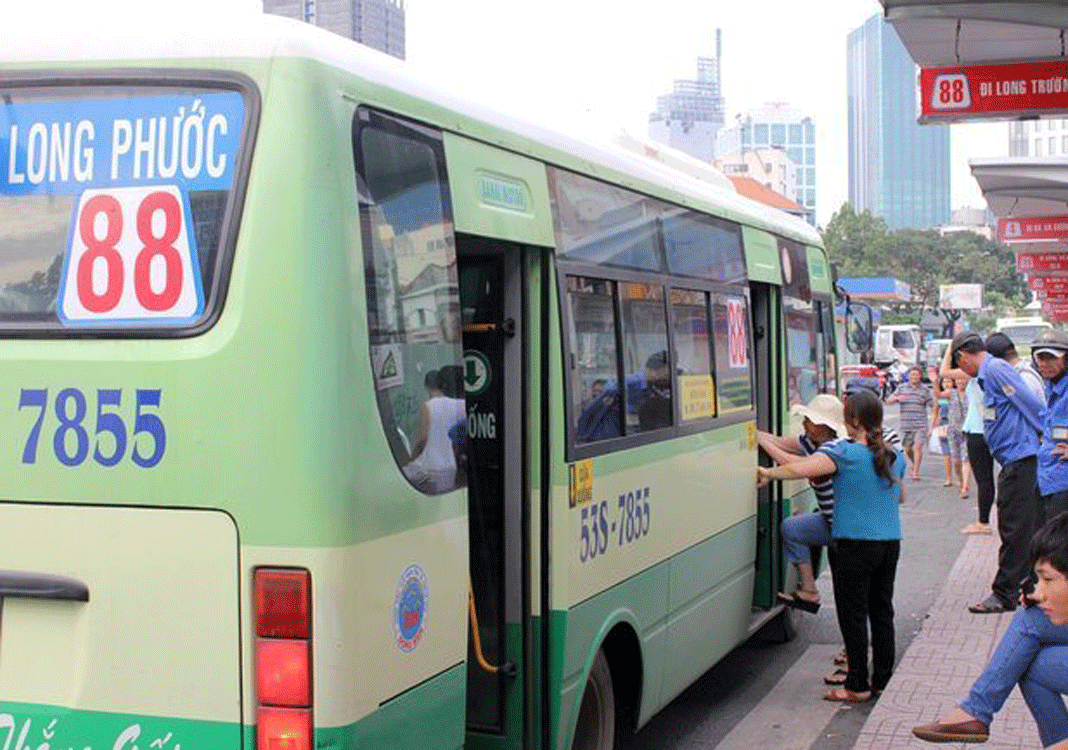HCMC – Despite being rejected by the Ministry of Transport, the HCMC Department of Transport has urged the municipal government to submit a proposal to the Government to open minibus routes in the city.
According to the department, despite efforts to improve the quality of public transport, the current urban traffic system with many narrow roads has hindered the city’s public transport system, Thanh Nien Online newspaper reported.
Specifically, buses can operate on roads with a minimum width of 10 meters. Out of the over 4,900 roads in HCMC, 3,450 roads have a width of less than seven meters and 55.52% of roads are not suitable for buses.
In addition, 85% of HCMC residents are now living in alleys.
Together with an increase in the number of private vehicles, the number of bus passengers has fallen, which is a reason for traffic congestion, environmental pollution and traffic accidents.
There is a need to develop smaller buses with 12 to 17 seats each.
In 2017, HCMC started studying a pilot plan on opening minibus routes. Accordingly, 30 minibus routes with 350 12-seater vehicles would help pick up passengers from four- to six-meter alleys. These minibus routes would be connected with bus routes and metro lines.
In mid-2020, the HCMC Department of Transport proposed opening six minibus routes using 17-seater minibuses connecting District 1 to Districts 2, 7 and 9.
However, the ministry rejected the proposal, saying it was not in accordance with regulations in the 2008 Law on Road Traffic, the Government’s Decree 10/2020 on the transport business and its conditions and the ministry’s Circular 12/2020 stipulating the organization and management of auto transport activities and road traffic supporting services.
Dr Luong Hoai Nam, a member of the consulting council for HCMC urban transportation, said some countries and territories with developed public systems such as Singapore and Hong Kong had developed bus, bus rapid transit and double-decker bus routes. HCMC should also use diverse buses, of which minibuses with 16 to 30 seats each are necessary as the city has many narrow alleys and streets.
As metro line projects in the city are facing difficulties in terms of finance, the city should work out plans to boost the development of buses and other public transport vehicles with low capacity and come up with plans to gradually reduce private vehicles, heading toward the elimination of motorcycles in the downtown area in the next 10-12 years.
Without buses and public transport vehicles with low capacity, metro lines will not operate effectively, Nam added.
Ha Ngoc Truong, vice chairman of the HCMC Bridge, Road and Port Association, shared Nam’s view, saying that the development of minibus routes in HCMC is necessary. All vehicles must be operated in line with the localities’ urban traffic system, which will be adjusted to match the traffic organization and infrastructure of each period.
The prime minister’s Decision 318 on strategies to develop transport services until 2020 with a vision to 2030 also required grade-1 cities to improve their public transport systems with urban railways being the key, while grade-2 cities must develop their network of buses and public transport vehicles with low capacity and taxis to support bus and metro line services.









